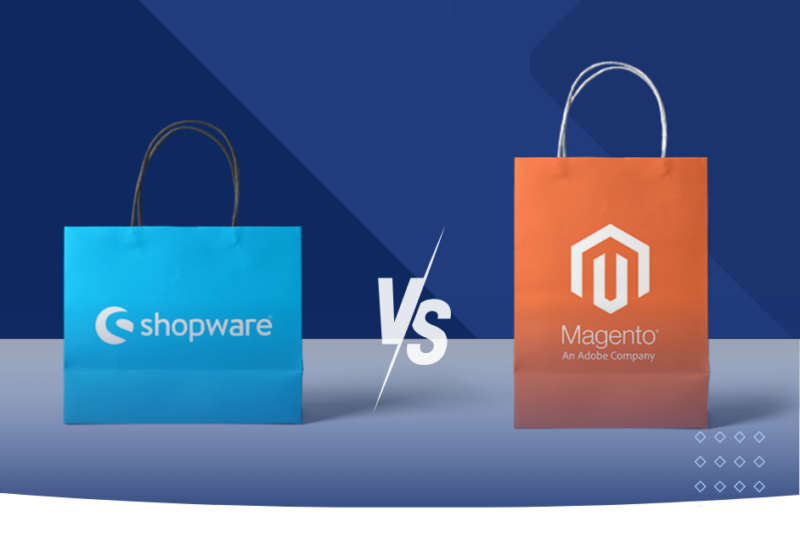Shopware vs Magento: Choosing the Right eCommerce Platform for Your Business
In the fast-paced world of eCommerce, selecting the right platform can make a significant difference in your online business’s success. Two popular contenders in this arena are Shopware and Magento. Both platforms offer powerful features and flexibility, but they cater to different needs and types of businesses. In this article, we will delve into the strengths and weaknesses of Shopware vs Magento to help you determine which is the best fit for your eCommerce needs.
Overview of Shopware
Shopware is a robust eCommerce platform originating from Germany. It has gained popularity due to its user-friendly interface and flexibility, making it suitable for businesses of all sizes. Shopware offers a range of features, including an intuitive drag-and-drop builder, seamless integration with third-party applications, and a strong focus on user experience. Additionally, Shopware’s modular architecture allows businesses to customize their stores according to their unique requirements.
Key Features of Shopware
- User-Friendly Interface: Shopware boasts a clean and intuitive dashboard that allows users to manage their stores easily. This is particularly beneficial for small to medium-sized businesses without extensive technical expertise.
- Customization Options: With a wide variety of themes and plugins available, Shopware allows users to customize their online stores to match their brand identity.
- Multi-Channel Capabilities: Shopware supports various sales channels, including online marketplaces and social media platforms, enabling businesses to reach a broader audience.
- Focus on Experience: The platform emphasizes creating exceptional shopping experiences for customers, which can lead to higher conversion rates.
Overview of Magento
Magento, on the other hand, is a robust eCommerce platform known for its scalability and extensive customization capabilities. It caters to businesses ranging from small startups to large enterprises. With a strong emphasis on flexibility, Magento allows users to create highly tailored online stores, but it often requires more technical knowledge to set up and manage effectively.
- Highly Customizable: Magento is known for its extensive customization options. Businesses can modify their stores to meet specific requirements, making it ideal for those with unique needs.
- Scalability: Magento is built to scale, making it suitable for growing businesses. It can handle large product catalogs and high traffic volumes without compromising performance.
- Strong Community Support: As an open-source platform, Magento has a vast community of developers and users who contribute to its growth. This community provides a wealth of resources, plugins, and extensions.
- Robust SEO Capabilities: Magento offers advanced SEO features, allowing businesses to optimize their stores for search engines effectively. This can lead to increased visibility and traffic.
Comparing Shopware and Magento
When deciding between Shopware vs Magento, it’s essential to consider various factors that can impact your decision. Here are some critical aspects to evaluate:
1. Ease of Use
Shopware is generally easier to use, particularly for those without technical expertise. Its user-friendly interface and drag-and-drop functionality make it accessible for beginners. In contrast, Magento can be more complex, requiring a deeper understanding of web development and design principles.
2. Customization and Flexibility
While both platforms offer customization options, Magento excels in this area. If your business requires a highly tailored solution with specific functionalities, Magento may be the better choice. On the other hand, if you prefer a straightforward approach with sufficient customization options, Shopware could be ideal.
3. Performance and Scalability
Magento is renowned for its scalability, making it suitable for large businesses with extensive product catalogs and high traffic. If you anticipate rapid growth or have a vast inventory, Magento’s architecture can handle increased demands. Shopware also performs well, but it may not scale as efficiently as Magento in very high-traffic scenarios.
4. Cost Considerations
Cost is another critical factor in the Magento vs Shopware debate. Shopware offers different pricing tiers, including a free version with essential features, which can be advantageous for small businesses. Magento, particularly the Enterprise edition, can be more expensive due to its hosting requirements and development costs. Businesses should assess their budgets and growth plans when evaluating costs.
5. Support and Community
Both platforms have strong communities, but Magento’s community is larger and more established. This can be beneficial for businesses looking for a wealth of resources, plugins, and third-party support. Shopware also offers support, but its community is not as extensive as Magento’s.
Conclusion
In the battle of Shopware vs Magento, the right choice ultimately depends on your business’s specific needs, budget, and technical expertise. Shopware is an excellent option for those seeking an easy-to-use platform with essential features and customization options, making it ideal for small to medium-sized businesses. Conversely, Magento is better suited for larger enterprises that require extensive customization and scalability.
When making your decision, consider your long-term goals, the complexity of your product offerings, and your team’s technical capabilities. By carefully evaluating these factors, you can choose the eCommerce platform that will help your business thrive in today’s competitive online marketplace.








